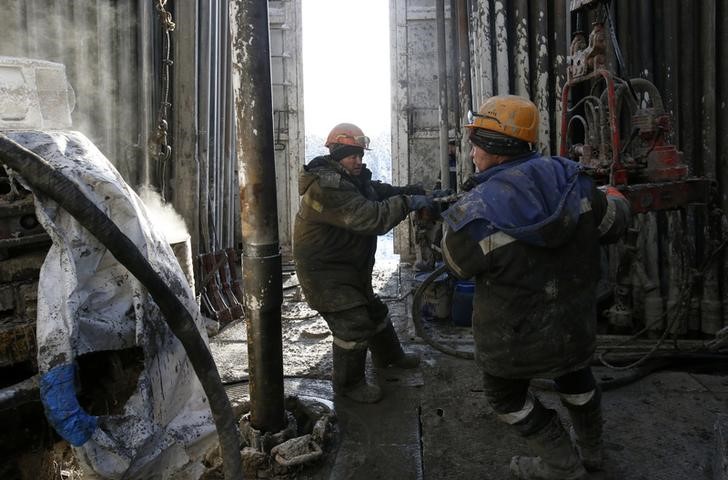Investing.com -- Oil prices fell Thursday, continuing the previous session’s sharp retreat as traders fretted about an uncertain demand outlook.
By 09:35 ET (13.35 GMT), U.S. crude futures traded 0.9% lower at $83.44 a barrel, while the Brent contract dropped 0.8% to $85.11.
Rising U.S. gasoline stocks suggest weak demand
Both contracts have continued to fall after dropping on Wednesday about 6% each for their sharpest one-day loss since September. This followed the release of data showing the largest weekly build in almost two years for U.S. stockpiles of gasoline, suggesting slowing demand in the largest consumer in the world. .
“Seasonally, it is normal to see gasoline demand falling during this time of year with the driving season well and truly behind us. However, even factoring in this seasonality, implied demand was very weak over the last week,” said analysts at ING, in a note.
On top of this, the economic outlook in Europe, another major source of demand, looks weak.
Data released Thursday showed that both French and Spanish industrial production fell in August, while the final composite Purchasing Managers' Index indicated that the eurozone economy probably shrank last quarter, making a recession in the second half of the year more likely.
Back in the U.S., the number of Americans filing new claims for unemployment benefits rose moderately last week.
OPEC+ confirms Saudi-Russian output cuts this year
Oil prices finished the third quarter up almost 30% after a rally sustained more by fears of production cuts by OPEC than booming post-pandemic demand for energy.
However, concerns about a bleaker macroeconomic outlook and the associated fuel demand destruction overshadowed positivity from the Organization of Petroleum Exporting Countries at its monthly meeting on Wednesday.
The oil producing group, known as OPEC+ when it includes Russia, reaffirmed the joint Saudi-Russian pledge to continue removing at least 1.3 million barrels a day from the combined daily production of the two countries until the end of the year.
Still, OPEC+ did not talk about extending those cuts into 2024, which came as something of a surprise given the insistence of the Saudis, in particular, to maintain prices at elevated levels,
“We still forecast a large deficit for the remainder of this year, which suggests that prices will remain relatively well supported,” added ING.
(Barani Krishnan contributed to this item.)
